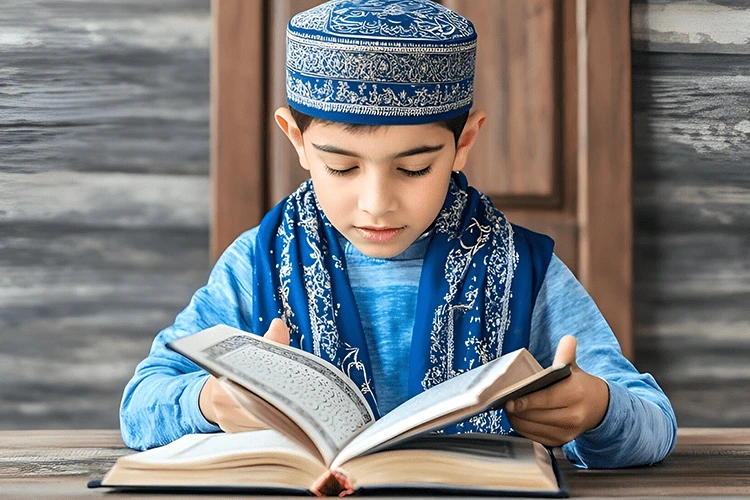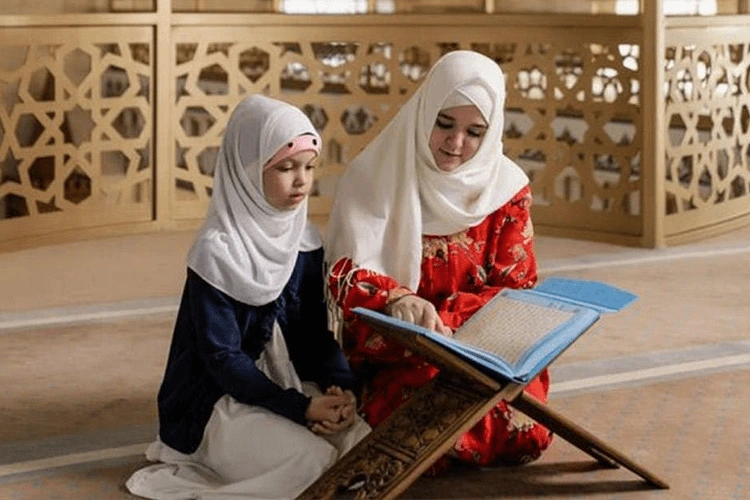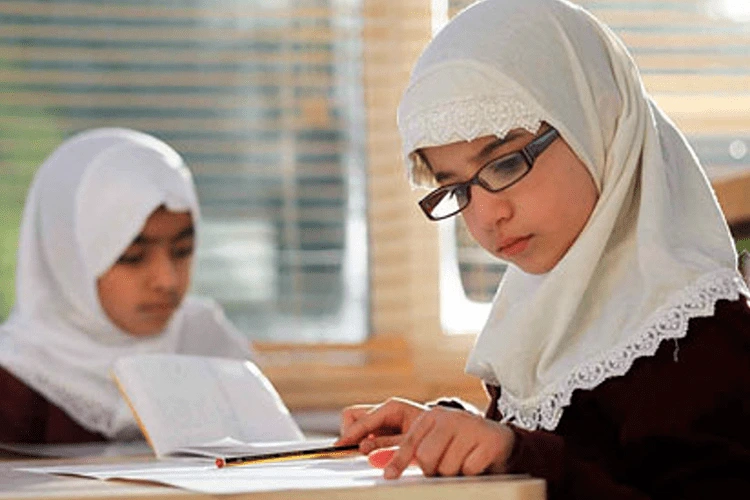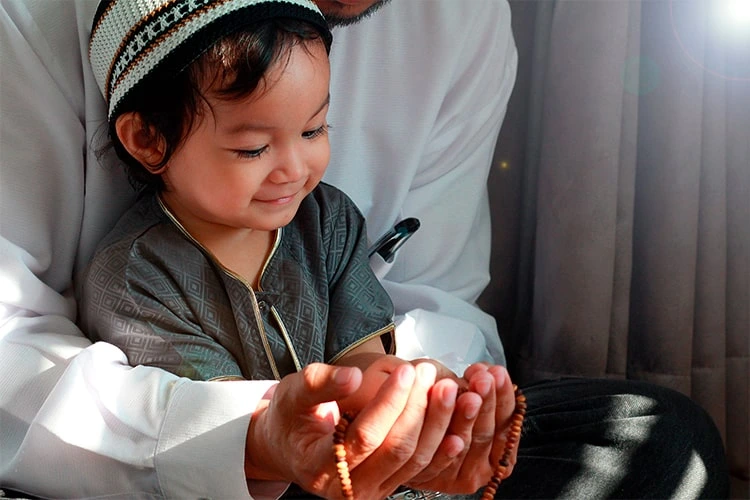Kids’ Islamic studies represent much more than a learning endeavor; it is one’s chance to cultivate young hearts and minds, enhance the spiritual bonds and establish a solid moral base. For parents, teachers, and homeschoolers, it is a way of engaging children with their faith, culture, and identity in an enjoyable yet meaningful manner.
In this post, the goal is to understand what children’s Islamic studies entail, its importance, and how to seamlessly incorporate it into a child’s life without it feeling like just another subject. By the end of this post, you will not only know the importance of religious education at an early age but feel confident enough to incorporate it in your child’s learning journey.
Understanding Islamic Studies for Kids

Islamic Studies is a fascinating field that encompasses a young Muslim’s journey throughout his knowledge of Islam, from Quranic verses to Islamic history, very fascinating to Islamic pedagogy.
What Does Islamic Studies Cover?
Islamic Studies consists of central themes of religion. Here are some of the key components it usually comprises:
Quranic Education
لعنة حلاوة Adhan is the first introduction to Islam that Muslims listen to from childhood, and alongside each important event of their life. Instructors introduce children to the Quran and teach them the basic Surahs first, followed by hifz and tajweed, which are simply Arabic. This approach also enhances kids’ spiritual connection.
Hadith and Sunnah
The sayings and actions of the Prophet Muhammad (PBUH) are critical in guiding children to practicing Islamic values in their life. For example, they can be taught about the impact of kindness, honesty, and modesty through the stories from the life of the Prophet.
Islamic History and Prophets
Knowledge about the life cycles of the prophets and important events in history provides a foundation for one’s religious identity and pride. These are usually told in catchy and age appropriate ways like story books and cartoons.
Islamic Manners and Ethics
In addition to using the right words like ‘Bismillah’ before meals, children are taught Islamic manners and ethics during Islamic Studies lessons which they can practice on daily basis. These lessons are fundamental in character building.
Why Is It Essential for Children?

Why focus on Islamic Studies in a child’s life? Here are three overarching reasons, among many others:
- Building a Strong Faith Foundation
A child’s belief system forms during their formative years. Islamic Knowledge, when learned at a tender age, makes a child nurture his/her faith deeply so that they can grow into practicing Muslims.
- Instilling Good Morals and Values
Islamic Studies does not comprise Theology alone, but ethics as well. Values like empathy, truth, and courtesy should be ingrained in children so that they become automatic responses.
- Strengthening Identity as a Muslim
In an era where most families are intermixing cultures and socio-economic backgrounds, Islamic Studies can serve as a tool to help children develop a sense of Muslim self. It allows children to feel positive about embracing themselves and their unique values.
The Role of Islamic Studies in a Child’s Development

The child’s cognitive, affective, and spiritual growth is influenced by Islamic Studies. As such, it is very important because it impacts children profoundly.
Spiritual Growth and Connection with Allah
The spiritual connection children form with Allah through salah, Quran recitation, and comprehension of Allah’s attributes helps them develop peace of mind and fortitude during life’s challenges.
Character Building and Moral Development
Generosity, forgiveness, patience, and humility are valuable traits every good person should possess. Instilling these traits will enable children to develop morally correct.
Strengthening Family and Community Bonds
Islamic Studies provides the foundation of respecting parents and the extended family, which enables good relations in the family setting. More so, it fosters participation within the larger Muslim community through service to and aid of one another.
How to Teach Islamic Studies to Kids
Uniting Islamic narratives with engagement techniques is vital for promoting learning in children, and makes sure that they savor every aspect of the learning process.
Making Learning Fun and Interactive

- Storytelling from the Quran and Hadith
Everybody enjoys stories! While sharing tales of the prophets and short stories from the hadith, educators entertain kids while teaching them important lessons.
- Engaging Activities and Crafts
Constructive and posters learning can involve making Arabic calligraphy, posters for Islamic values, and writing Ramadan calendars.
- Islamic Cartoons and Videos
With modern-day innovations, resources begin from animated Quran stories to Islamic YouTube channels specially designed for children.
Best Methods to Teach at Home and School
- Structured Islamic Curriculum
Guided learning systems ensure systematic knowledge acquisition.
- Enrolling in Online Quran Academies
Al-Huda Quran Academy And Other Similar Platforms For Parents Who Would Like To Enroll Their Children For A Professional Islamic Education But Do Not Have Time To Leave The House.
- Daily Practice Through Prayers and Duas
Practice of basic salah (daily prayers) and short duas (supplications) ensure that Islam becomes an integral part of a child’s life.
The Benefits of Early Islamic Education

The life-long benefits of doing Islamic Studies early are quite extensive, from the spiritual aspect all the way to the practical one.
- Strengthening Faith and Spirituality
Regular exposure to Islamic guidance prepares a person spiritually for the trials and difficulties of life.
- Enhancing Knowledge About Islamic History
Knowing one’s ancestry helps children take pride in their background and learn the value of multiculturalism.
- Developing Self-Discipline and Good Manners
Parents and caregivers encourage young children to observe daily prayers, which, along with other Islamic practices, help foster discipline and etiquette.
Common Challenges in Teaching Islamic Studies
Instruction in Islamic Studies has its own set of challenges, but knowing these struggles is half the battle.
- Lack of Interest Among Kids
To enhance engagement, concentrate on plays that grab the child’s attention and make them interesting.
- Balancing Islamic Education with Modern Studies
Islamic principles can be taught while eating, driving, or playing.
- Overcoming Language Barriers
Teaching kids Arabic at the same time as Islamic Studies can resolve these gaps, whether through classroom instruction or children’s learning apps.
How Al-Huda Quran Academy Helps in Islamic Learning
For parents looking to raise their children in a well-rounded Muslim manner, Al-Huda Quran Academy is a fantastic choice.
- Expert Islamic Teachers for Kids
Qualified instructors give students proper and engaging lessons based on their age and grade level.
- Interactive and Engaging Online Classes
Modern technology like live videos and quizzes make online classes easy, interactive and fun.
- Flexible Schedules for Students
Even busy families can include Islamic education in their lives, as classes are offered at different times throughout the day.
Prioritize Islamic Studies for a Bright Future
To raise children to be self-assured, caring, and intelligent Muslims, it starts with Islamic Studies. Knowing what faith is, their moral values, and a sense of who they are helps to build a strong base for the future.
If you’re a parent, educator, or a homeschooler, now is the right time to incorporate Islamic Studies to children. From this point on, you can make a change—check out Al-Huda Quran Academy, or teach through simple daily activities.
Frequently Asked Questions (FAQs)
The better, the earlier. Numerous families begin with simple duas and Quranic Chapters when their kids are about 3-4 years old.
Try using interactive methods such as stories, crafts, and videos to make the lessons more exciting.
Definitely! Online Academies like Al-Huda Quran Academy have engaging yet structured programs that get the work done.

